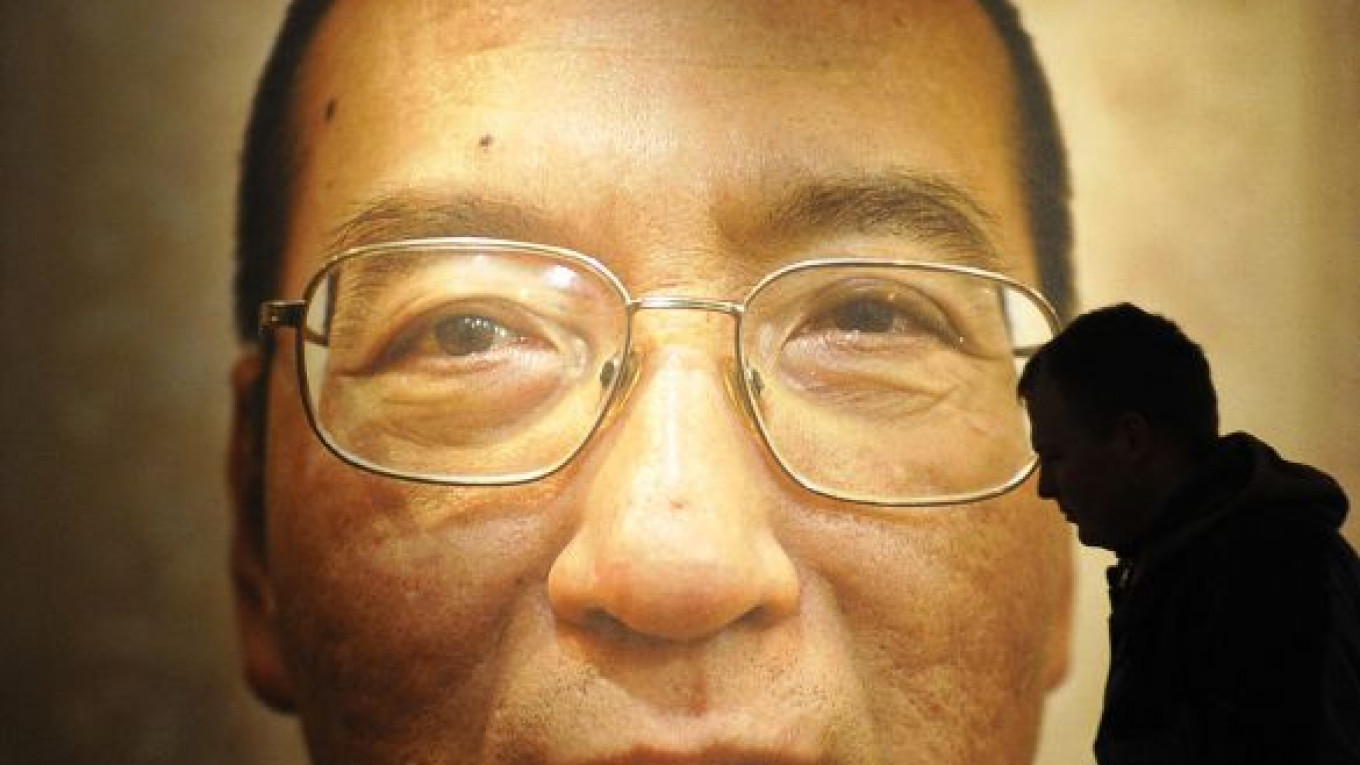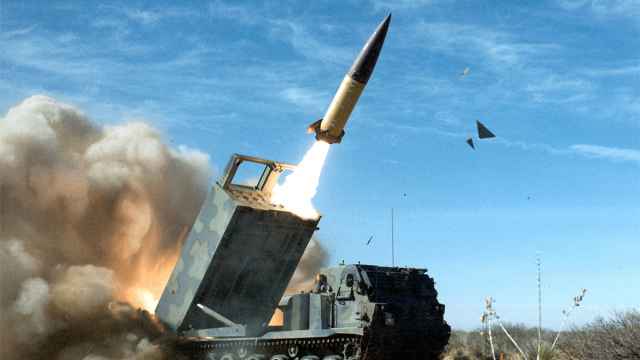GENEVA — “A vile slanderer seeking to earn filthy capitalist lucre by besmirching the homeland that nurtured him.”
The China People’s Daily, perhaps, on Friday’s Nobel Peace Prize ceremony for jailed Chinese dissident Liu Xiaobo?
No. Moscow’s Sovietskaya Rossia in 1970 on writer Alexander Solzhenitsyn who won the Nobel Literature Prize that year for works deemed anti-Soviet by the Kremlin.
“A hermit isolated from the people, wallowing in his own moral degradation.”
That was the official Soviet Writers’ Union in 1958 on Boris Pasternak, a poet and novelist who had just won the Nobel prize for his saga of the Revolution, “Doctor Zhivago.”
“A self-important nonentity whose scribblings and pronouncements on political matters show nothing but a wish to please his masters in the West.”
These were Moscow Radio’s comments at the time on previously honored physicist-turned-human rights campaigner Andrei Sakharov who in 1975 was named — like Liu this year — Nobel peace laureate.
Soviet officials were as vitriolic about the Nobel committees, the Peace one in Oslo and its Literature counterpart in Stockholm, as the Chinese who have denounced the award to Liu as “an obscenity.” “A bunch of Cold Warriors determined to besmirch our peace-loving country,” was the standard epithet recycled in only varying form at the time of each award.
Neither Pasternak, Solzhenitsyn nor Sakharov, like Liu, could go to pick up their prizes in person — at the time.
Pasternak died in Moscow in 1960, a broken man after being forced to decline the award. Solzhenitsyn was hounded, isolated, and then expelled from the Soviet Union in 1974 when his labor camp study, “The Gulag Archipelago,” was published in the West.
Sakharov, pushing on with his human rights work, was stripped of all his scientific and state awards, then arrested in 1980 and sent into exile for five years in Gorky, now Nizhny Novgorod. Liu for his part has been jailed for 11 years on subversion charges.
But in what could provide a grain of comfort for Liu — a former literature professor and author, like Sakharov, of a manifesto for greater democracy — times changed and their country revised its view of the three Soviet prizewinners. “Doctor Zhivago” was published in the Soviet Union in the late 1980s under President Mikhail Gorbachev, and Pasternak has long been restored to the official pantheon of great Russian writers. Nikita Khrushchev, the Soviet leader in 1958 who authorized the campaign against him, repented after his enforced retirement in 1964, writing in his secret memoirs that he had been misled. Khrushchev’s reminiscences have also appeared in Moscow.
Solzhenitsyn, who lived for two decades in the United States, saw his long-banned books become best sellers in the Soviet Union under Gorbachev in the late 1980s and in Russia after communism collapsed in 1991. In 1990, his Soviet citizenship was restored, and in 1994 he returned in triumph to Moscow to a warm official welcome. In 2007, a year before his death, he was awarded a state prize for humanitarian work by then-President Vladimir Putin.
Gorbachev was also instrumental in the rehabilitation of Sakharov. Soon after becoming Kremlin chief in 1985, he personally telephoned the physicist in Gorky and told him he could come home. All his awards and his status in the Academy of Sciences were restored, and on occasion Gorbachev quietly sought his advice on social policies.
In 1989, he was elected to the new Congress of People’s Deputies, which replaced the old rubber-stamp Supreme Soviet, and immediately made his mark with feisty speeches. But he died from a heart attack at the end of the year.
Today, museums, streets and squares across Russia bear his name, and St. Petersburg has a Sakharov monument.
The age of the Internet means that Gorky-style isolation for dissidents and their supporters may be more difficult for Chinese authorities to enforce.
But for Liu, whose absence at the ceremony will be symbolized by an empty chair, hope may have its bounds.
Beijing is following an avowedly different approach to reform than the Soviet Union did. While promoting economic change, it eschews Gorbachev’s political liberalization that ended ultimately in the Soviet collapse.
Official Beijing’s reaction to Liu’s peace prize, worth 10 million Swedish crowns ($1.46 million) alongside the medal and diploma, suggests little change to this approach for now. “An obscenity.” “We will not change because of some wind blowing the grass, because of the interference of some clowns.”
A Message from The Moscow Times:
Dear readers,
We are facing unprecedented challenges. Russia's Prosecutor General's Office has designated The Moscow Times as an "undesirable" organization, criminalizing our work and putting our staff at risk of prosecution. This follows our earlier unjust labeling as a "foreign agent."
These actions are direct attempts to silence independent journalism in Russia. The authorities claim our work "discredits the decisions of the Russian leadership." We see things differently: we strive to provide accurate, unbiased reporting on Russia.
We, the journalists of The Moscow Times, refuse to be silenced. But to continue our work, we need your help.
Your support, no matter how small, makes a world of difference. If you can, please support us monthly starting from just $2. It's quick to set up, and every contribution makes a significant impact.
By supporting The Moscow Times, you're defending open, independent journalism in the face of repression. Thank you for standing with us.
Remind me later.






